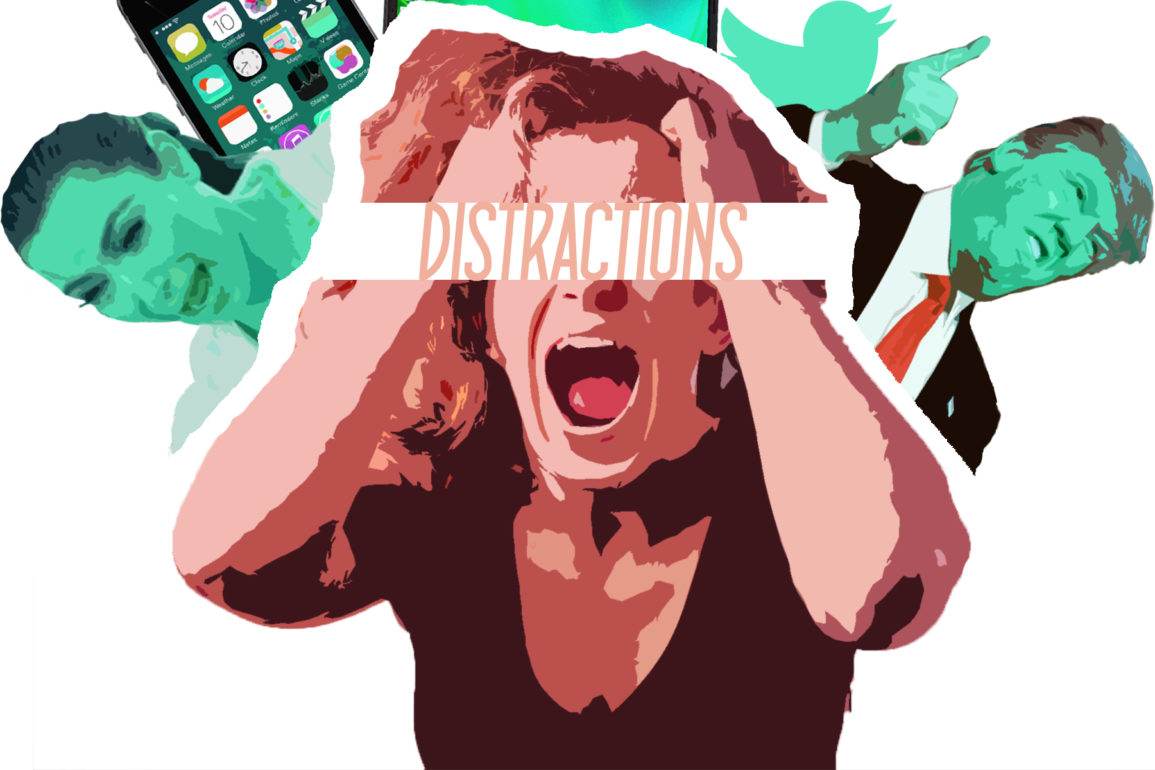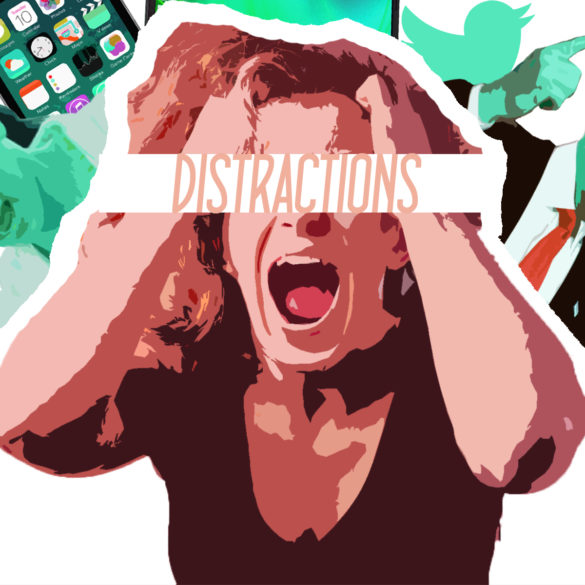The everyday presence of technology, although sometimes unnoticed, can impact relationships and development through the stages of life.
When freshman Madison McGinnis sits in class at Ball State University, she takes notes on her Apple laptop. When iMessages pop up on her screen, she easily swipes over to view them without ever having to get her phone out. When she receives a message or notification from another app during class, it makes it harder to focus because she wants to check it. She feels that technology can make focusing in class more difficult.
And she’s right.
Technology is making it easier for us to get distracted during the learning process and when we spend time with people, according to Katie M. Lawson, an assistant professor of Psychological Science at Ball State University. As technology continues to advance, it becomes increasingly important to know how it is affecting us daily.
Distracted Learning
While she does her homework, Madison likes to open her Spotify account and listen to music. She says that she feels more productive when she does. In her opinion, music can be motivating or soothing. But this might not actually be valid.
According to Kristelle Lavallee, a content strategist in the center on media and child health from Boston Children’s Hospital, if someone is doing something like listening to music or watching a show while writing a paper, the brain is switching back and forth between tasks rapidly. This is known as serial tasking, according Psychology Today.
We may think we are doing different tasks simultaneously, but we aren’t. Lavallee says when the brain gets distracted by media, the amount of actual concentration and focus on a task decreases because we are switching tasks so rapidly. So while Madison feels like she’s allowing herself to be more productive, her brain is actually switching between paying attention to the music and paying attention to her work.
According to a study released in 2017 by the American Psychological Association, constantly checking and using technology can also cause stress. Participants were asked to rate stress levels associated with technology use on a scale from one to ten, one being “little or no stress” and ten being “a great deal of stress.” The average rating was around five. When students check their phones during the school day, they may be adding to their stress without even realizing it.
With that stress comes thinking about stress. And thinking about that stress is just another distraction.
Impacted Development
Erin Wagoner, a junior at Indiana University Purdue University Indianapolis, says she is always on her phone scrolling through social media, sending pictures to friends, and texting people instead of valuing time with her family and friends. She says there have been several instances when she will tune out of conversations to look at her phone or other devices.
Sometimes, she even finds herself asking people to repeat what they’ve said to her; she wasn’t paying attention to their words because she was too busy looking at a screen.
Lawson says that the use of technology can decrease the ability to self-regulate emotions, such as boredom, in children. However, how much it affects that ability depends on the individual. For example, before smartphones and tablets, children on long car rides would stare out the window or read a book. Now, they can play a game on a phone or tablet and keep themselves stimulated. This can transfer to adulthood, with the feeling of always wanting to check our phones or feeling obligated to look at a notification.
The use of technology can have serious impacts on the brain. According to the scholarly journal Abnormal White Matter Integrity in Adolescents with Internet Addiction Disorder: A Tract-Based Spatial Statistics Study, children with Internet Addiction Disorder have reduced white matter in their brains. Because white matter is involved in learning and retaining knowledge, this can become problematic.
The use of technology can also reduce gray matter in the brain, which is also problematic. The results found in these studies are not much different than those found in individuals who are addicted to substances such as alcohol or cocaine—addiction is addiction, no matter the form it takes. And it can have serious side effects.
Reduction of white and gray matter can impact emotional processing. Gray matter is a major component of the central nervous system, so its loss can affect speech, emotion, sensory perception, muscle control, and self-control.
Constantly Connected
When an event becomes boring, Ball State University sophomore Evan Bell sometimes turns to his phone for entertainment. In a situation that is not interesting, Evan can easily open up Instagram or Snapchat, his favorite social media applications, to occupy himself. However, he realizes that when he doesn’t look at his phone, he can comprehend more and pay attention to what is important.
Evan isn’t alone in his attachment to his phone. According to a Gallup Poll from 2015, almost half of American smartphone users can’t imagine living life without their smartphones.
According to Lawson, the brain can lose cells when they are not used. People use different brain cells when they are using technology compared to taking a walk in nature, and cells that are not used are especially lost during childhood. These cells can never come back once they are gone.
But the effect is not just on children. Lavallee says that the prefrontal cortex is not fully developed until age twenty-five. This means that college students have brains that are still changing, and constantly using technology—staring into their phone screens, for example—can have negative effects on their development.
Lavallee suggests balancing media time in order to help combat this. It’s beneficial to set aside different hours or times of the day, such as before bed or during meals, to be away from screens and technology. This gives the brain time to process what you have learned throughout the day.
Lawson says that a break from technology helps people clear their minds, so when they come back to their work they are able to focus better. Because of this, she suggests that those who feel overwhelmed or stressed out by technology spend time outside or exercise.
According to a 2015 study by Pew Research Center, one-fifth of adults say they go online “almost constantly,” with about three-quarters of Americans using a smartphone.
Lavallee says that while we think we’re multitasking by using technology, we are really serial tasking, which can decrease focused work. While technology can be distracting in many assets of life, it is also a useful tool. It can be set aside if the distractions become too overwhelming.




